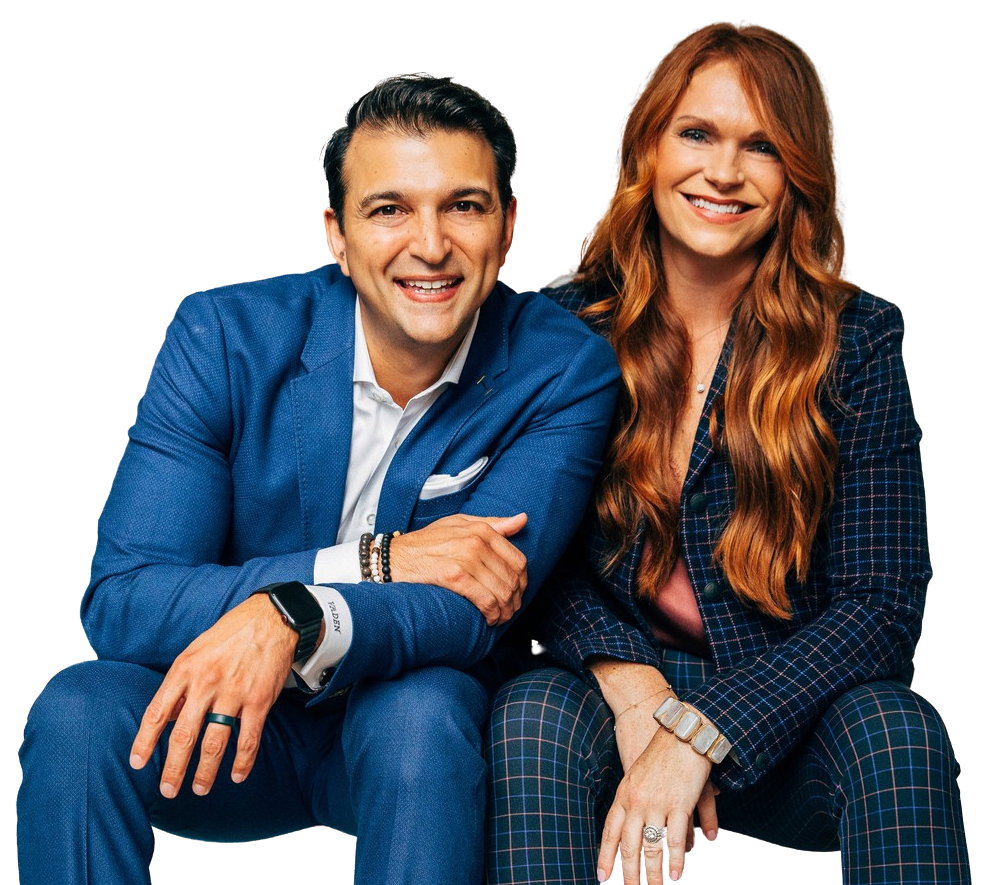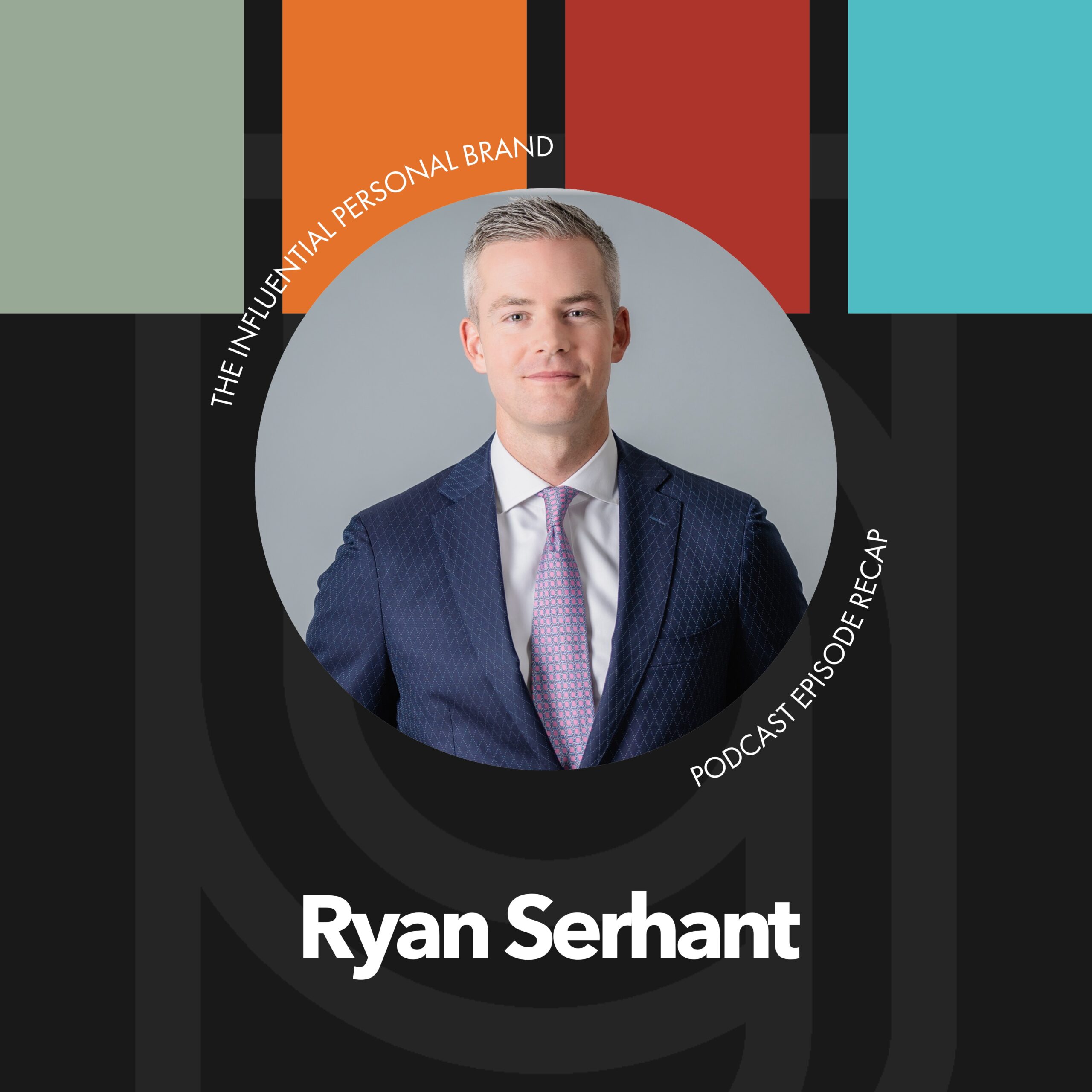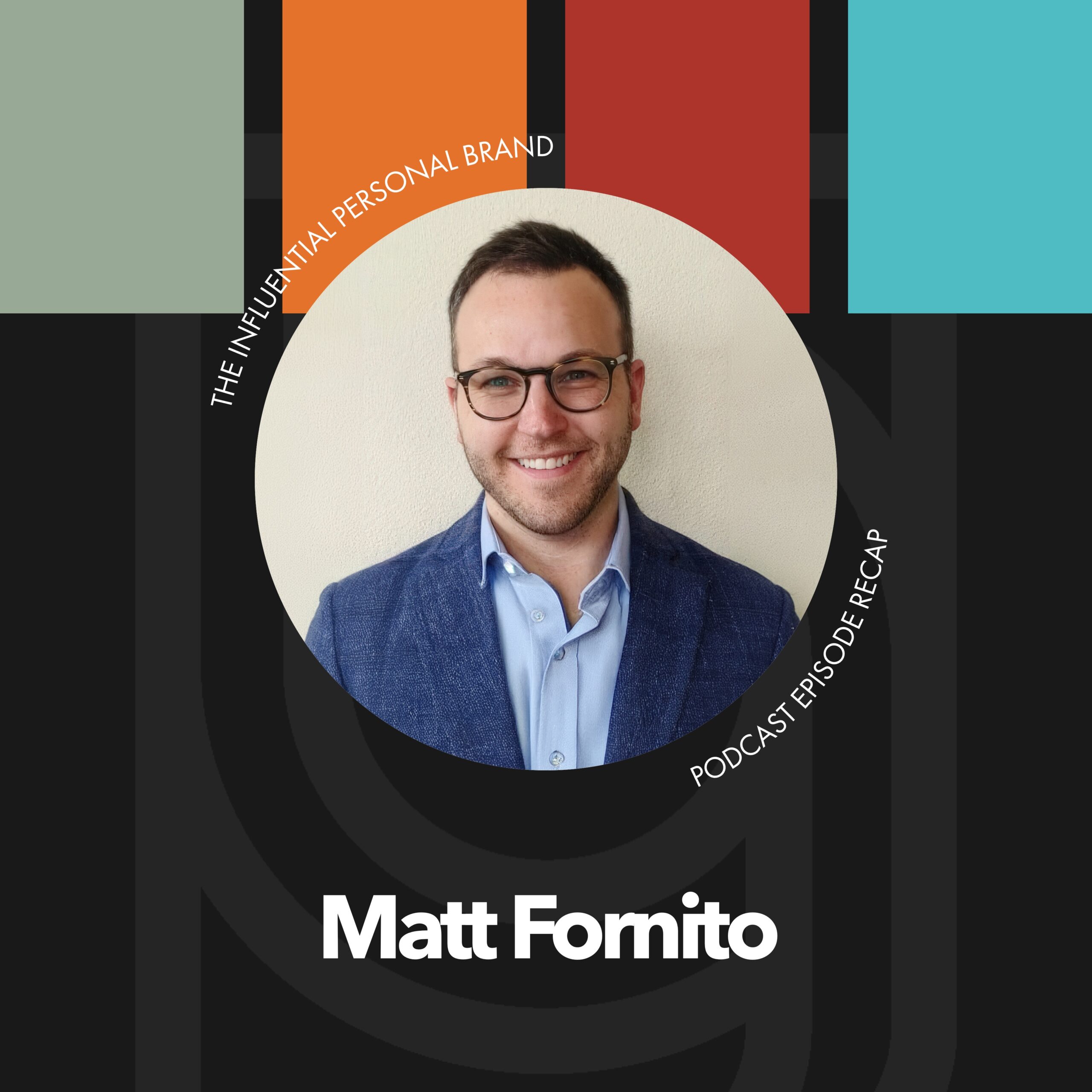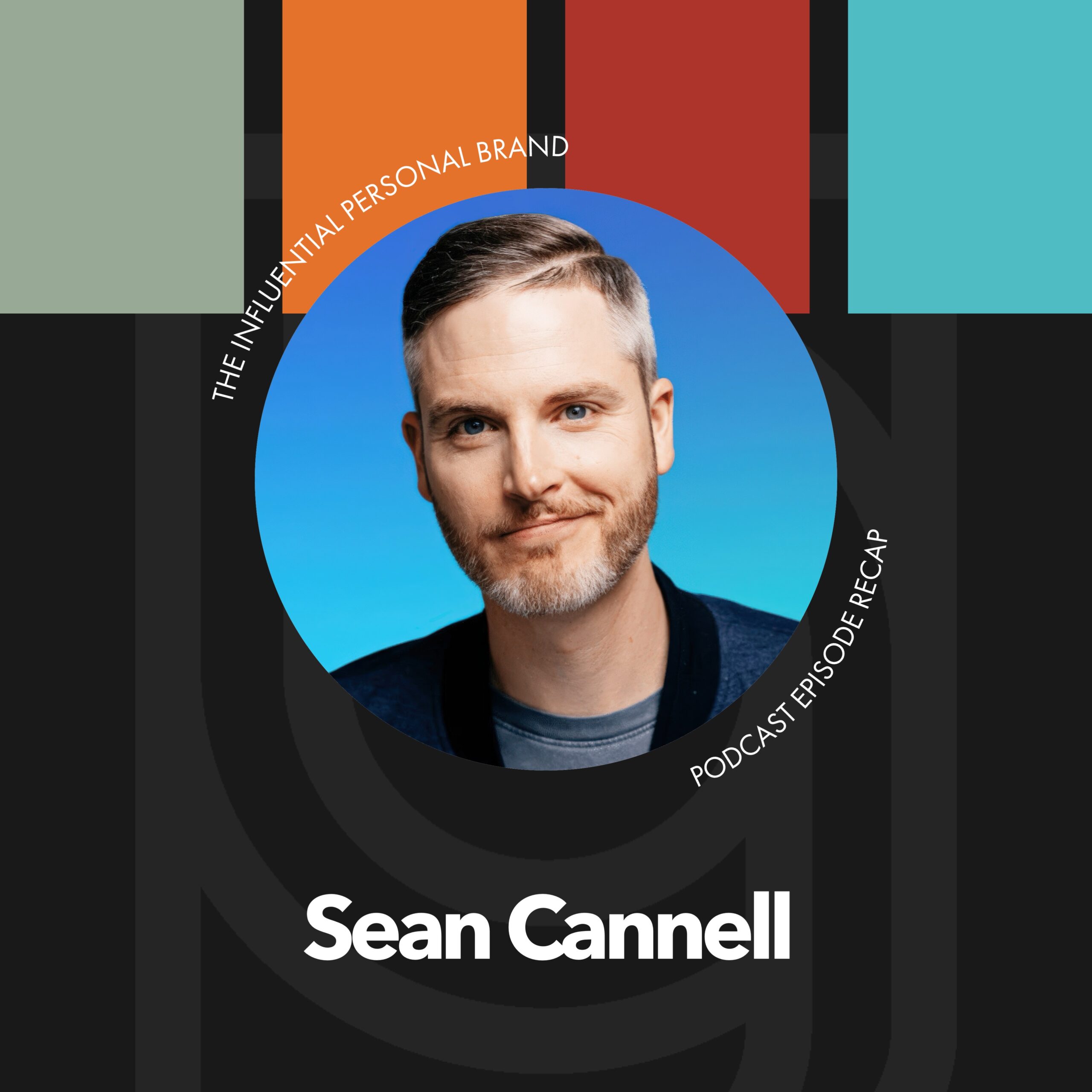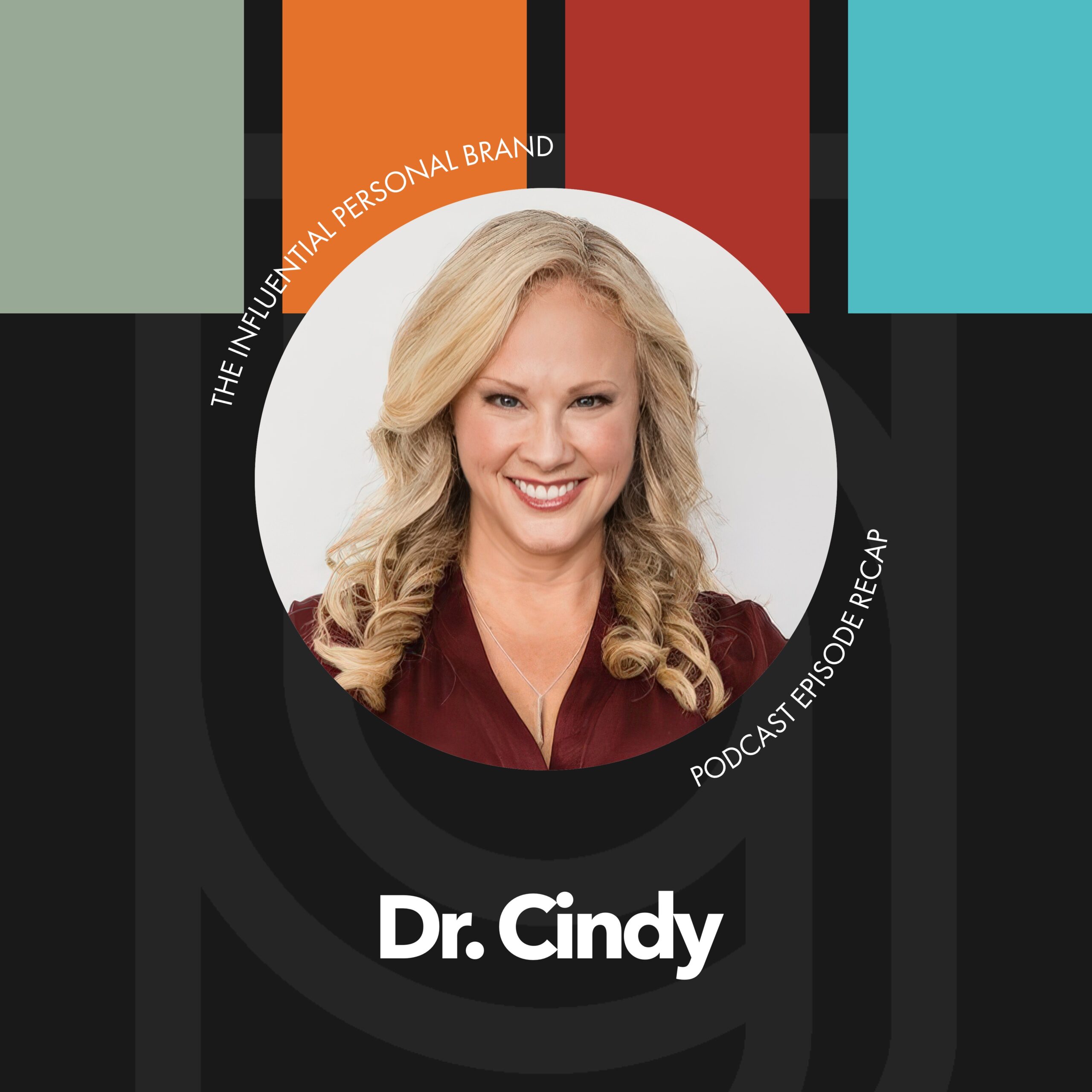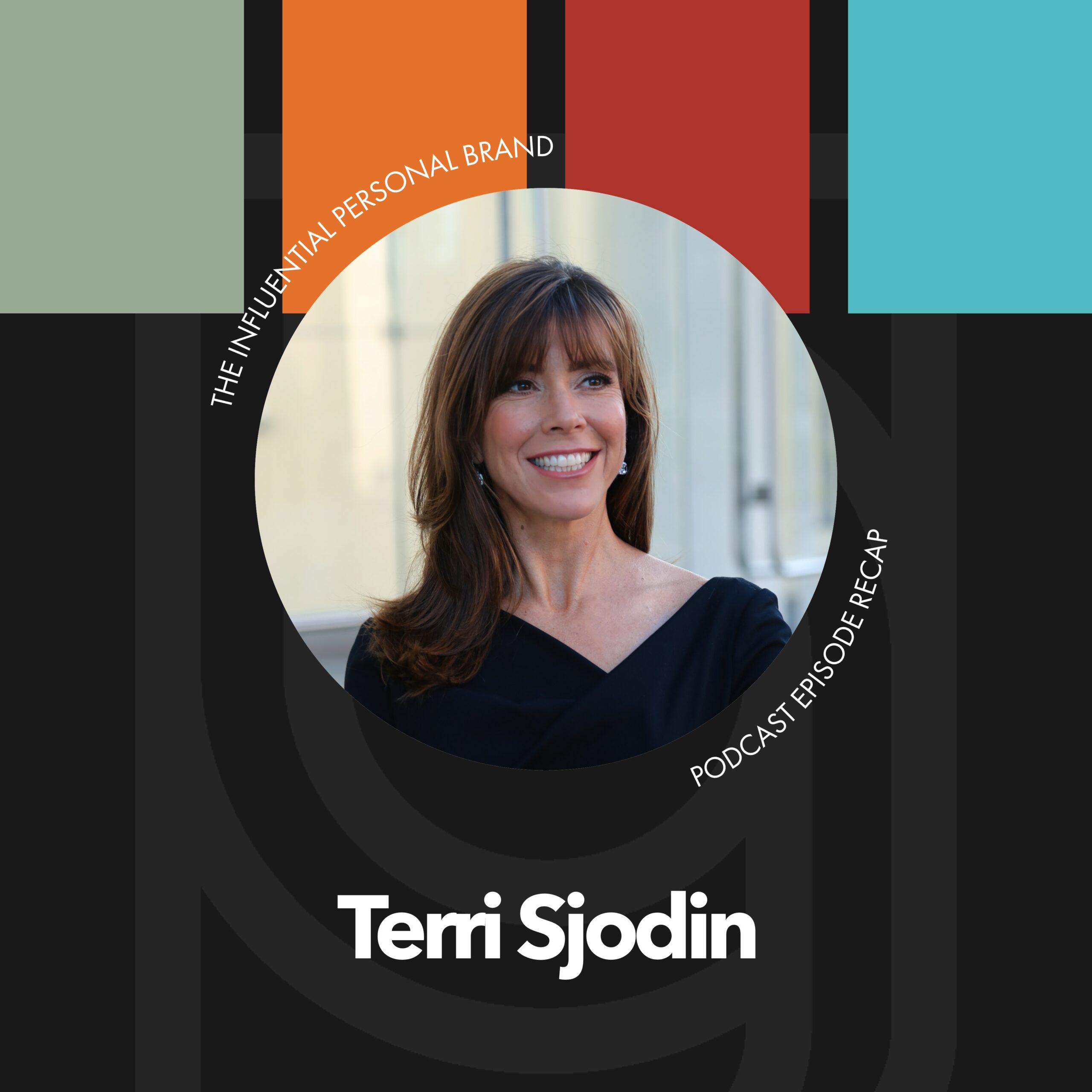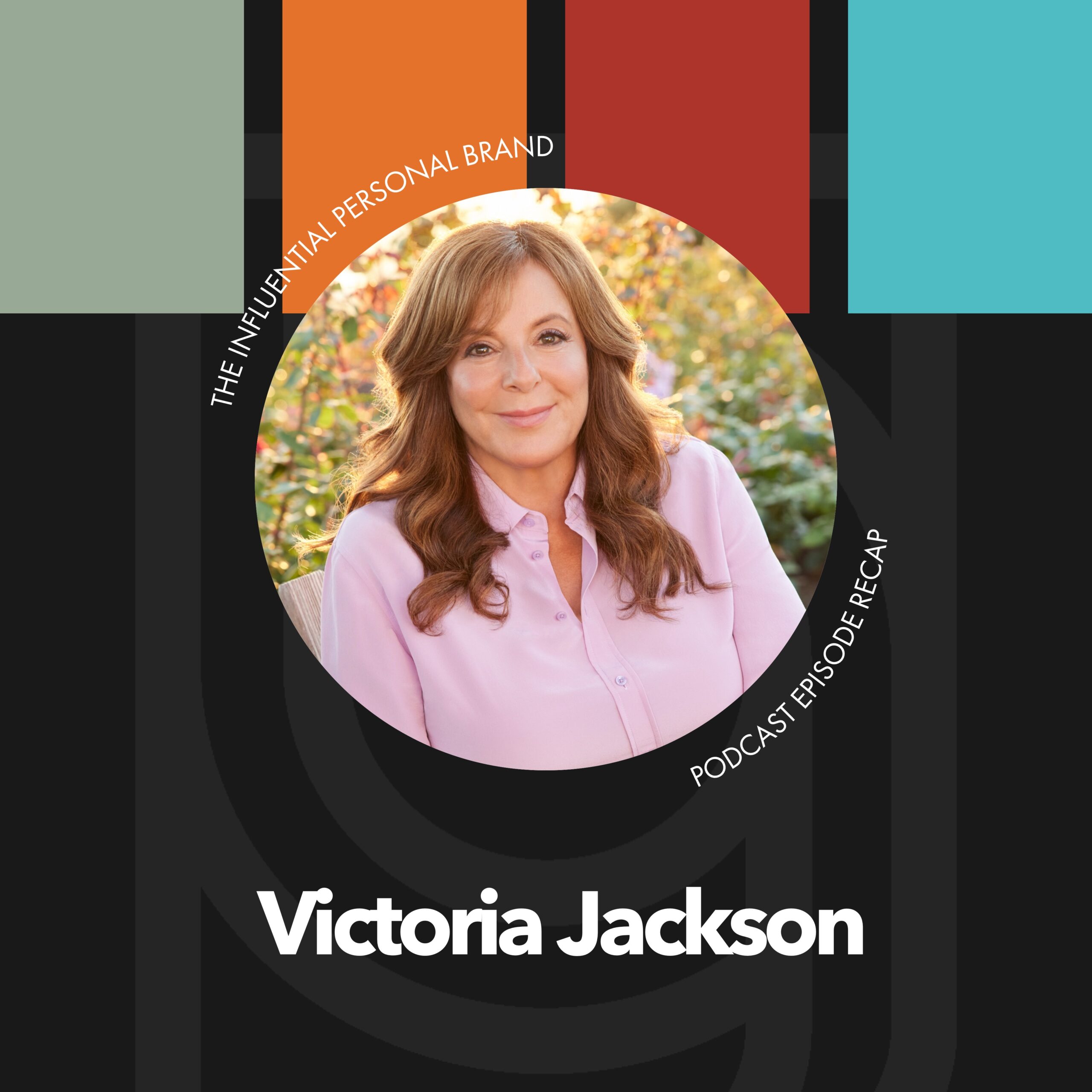RV (00:02):
What a blast getting to talk to Jesse Terranova, one of our very own brand builders. You know, we actually have a lot of our clients come on the show. And you know, this one was interesting a lot of times cuz we knew them before, you know, and were aware of their work before. And then, you know, they become a client because we’re helping them on some piece of their business, something. But with Jesse, you know, specifically he won the chance to come on, which was really fun. We gave us away. You know, we did this as a, as a drawing AJ, it was AJ’s idea for the 12 days of Christmas that you could win a chance to come up here on the episode and to get to hear Jesse and see, you know, his powerful, personal story. Such a great example of someone who’s taking their own pain and, you know, turning it into something beautiful for other people.
RV (00:51):
And, and just a living example of everything that we talk about, like with, with someone who’s a brand builder is realizing you’re most powerfully positioned to serve the person you once were. We say that all the time and see story is a great example of that. And so to see that happening and get to talk to someone who’s like earlier in their stage, but also when he was on his retreat, getting his, his, his first customers, you know, delivering to his first customers. So, so wonderful. And it reminded me, you know, we got a chance to also do some live coaching. This is something that we’ve thought about. A few times is going, I wonder if we should do more live coaching on these for our podcast so that you get a chance to sort of like listen to us, coach you know, people who have questions about, about their personal brand.
RV (01:44):
So, you know, let us know what you think about that. It’s just, you know, send me a leave me a comment on my Instagram or shoot me a DM. You could always write in info brand builders, group.com or something, but like, I would love to hear your feedback on on that if, if, if to say, would you like to hear more that were live coaching where we just did like live coaching with guests. So in this case, Jesse is already a client. So there’s already a little bit of a background, a lot of, bit of background of, you know, some of our framework and content. But anyways, that’s what we’re thinking about. So all right. My biggest takeaways here. So first of all, with, with Jesse and for, in something we are often referencing and telling people all the time is once you figure out the, the, who, everything becomes clearer, like once you know, who is the actual other person that’s listening on the other side of your microphone or on the other side of the camera, if, if you’re talking about social media, the other side of the pen, if you’re a book things really become clear.
RV (02:51):
And yet a lot of our, our members, a lot of our clients struggle to narrow down exactly who they wanna talk to. Right? And they go, I wanna help everybody. Well, it’s not only, it’s not only a bad strategy from a marketing standpoint, but it also, it, it makes your content very weak. It dilutes your content because you can’t, you can’t speak directly and powerfully in, in a deep. And so, you know, here’s, here’s the, the big lesson that I think is a, is a good reminder and takeaway. And I think, you know, Jesse in many ways is doing this well, is choose the audience that you can serve in the deepest way, choose the audience you can serve in the deepest way. That is the, the fastest place to start. That’s the most obvious place to start. It’s the, the best place to start.
RV (03:40):
It ties in with what we’re always saying. You’re most powerfully positioned to serve the person you once work, right? So if you don’t know what, where should I start? Like that is a place to start because that’s where you can get traction and you can get momentum and leverage, you know, unless for some reason you just really, really don’t wanna do it. Then there’s, there’s maybe some tertiary or tangent, tangential you know, topic that we would pursue, but it’s, you’re always going to, to be able to speak most directly to that person. So think about that. The, the, the second big takeaway, which is related to that is design your, your business model around the, the actual needs of your clients, design your business model around the actual needs of your business clients. So, or of your actual clients. So what a lot of people do is they say, you know, they kind of come up with a, a medium like mechanism.
RV (04:42):
They’re like, oh, I wanna write a, I wanna write a book or I wanna release a speech, or I wanna have a video course or a membership site. And that’s fine. Like it’s not bad or wrong to like, pursue that. But even in the context of pursuing that, or in the, especially in the absence of clarity about how you should structure your offer or how you should structure your program, or like what you should include, make it less about what do other people do, like other people in your space, or just other personal brands in general and orient it. And, and, and also, I would say less even about what you think it should be like, what you just do and orient it more specifically around what do my clients actually need in order to succeed. Like, what is the, the best way to organize the delivery of the information, the continuity of the experience, the, the connection in the collaboration, the feedback, the accountability like between, and, and, and really make that the primary focal point.
RV (05:53):
And because if you can orient to that, they’re gonna succeed faster and you’re gonna succeed faster because they’re gonna get results. And they’re gonna tell people, and you’re gonna have great case studies and testimonials. And so too often, we just go, you know, like we’re scrolling on Facebook and we see an ad that says, yeah, you know, how do I make a million dollars coaching people? Or how, you know, how, how do I make a million dollars doing Facebook groups? What, like, whatever the thing is. And, and they’re not, they’re not bad. They’re all, they’re all good. They’re all workable. They’re all, they all can contribute, but it’s, it’s more, it’s less of that. And it’s more of just orienting yourself based upon the person you’re trying to serve, orienting your entire brand, your entire perspective, your, your consideration of the type of content you create, the, the amount of money you charge, the, the deliverables, the frequency in which you communicate with them, the, the, the environment of, in which you communicate with them, you know, can it, some of it be virtual or all of it be virtual, or can it be in person?
RV (06:54):
Does it need to be live? Can it just be broadcast? How much of it needs to be communal, like all of these decisions go into a business model. It’s not just like, oh, wanna launch a podcast. So that’s what we’re gonna do. You know, it’s more about actually assessing what is the what is the best and highest use of your time for your clients? Again, it goes back to what we were saying earlier, choose the audience that you can serve in the deepest way. That’s where you’re gonna get the most momentum, because you know that person, how do you know that person? Because you were that person. So nobody is gonna be better suited to serve that person than you, because you were them, you know exactly what it is. This is why brand builders group exists. Right. We know what it’s like to be an aspiring author or right.
RV (07:44):
And go how do you go from, I don’t even know what the difference is between a self-published book and a New York times bestselling book to, to being a New York times bestselling author. I know what it’s like to sit in an audience and go, how do you get to be the person on stage in front of 10,000 people? And then getting to do that. We know what it’s like to go, am I capable of creating a coaching program and then turning that into an eight figure business? Like, so that is just, these are the things that we know about, or building a, you know, the building, a personal brand in general, that’s, you know, a social media following the podcast and all these things that we’ve done. It’s because we know you, like, if that is you, like, we know you, we know exactly what you need and people go, oh my gosh, your curriculum is amazing.
RV (08:27):
Like, it’s exactly what I needed. Yeah, of course it is why, cause it’s what we needed. Like, it’s what we wished we had. So that’s the same way that you would wanna design things for your pro aspects and for your clients. And you’re, you’re, you’re most able to do that. And it’s most efficient for you to do that around and in the cases of people that are the people who you once were, or people who, you know, really, really, really, really well. So design your business model around the needs of your clients. And, and the question is not so much, what’s the easiest way to make a lot of money. This is another distinction here, right? People go, oh, what’s the easiest way to make a lot of money. That’s the wrong question. The right question is to how can I serve my audience in the most meaningful way? Not how can I make money the fastest? How can I serve my audience in the most meaningful way?
RV (09:25):
It’s not wrong to also consider what would be profitable. And, and it’s definitely not wrong to structure. How do I need to structure this in order for it to profitable? Because if you’re not profitable, then there’s not gonna be any sustainability to your business, which means you’re not gonna be able to serve anyone. So it’s, it’s not that we’re against money or profit by any means. It’s just going the lead decision shapes, the trajectory like of the whole future. If your business is just going, like, how can I make a lot of money that sets you on a course of a whole series of decisions that we believe are going to lead you off track it, it, because you’re gonna burn out or people are gonna sense it, or you’re gonna get tired or bored. That’s totally different than going. Who do I wanna dedicate my life to serving?
RV (10:17):
What are they really struggling with and what do they need? And how could I put that together for them that send you on a completely different path? It it’s a whole, it’s a, it’s, it’s two different trajectories. Ironically, that is the one that will lead to the most scalable long-term income. The problem. Sometimes it’s not always the most immediate short term income. And so you sometimes have to balance some of that and do some things in the short term to make it all work. But if you just chase the money, it’s gonna break down, you’re gonna break down. You’re gonna burn out. You’re gonna go. Like, you’re gonna look up in three years, maybe sooner, maybe a little bit longer and just go, like, I don’t even enjoy what I’m doing anymore because it’s not aligned. It’s not aligned, right? This is about finding an aligned business model.
RV (11:06):
And it’s, it’s not the same as what the person next to you would do, or the other person in the industry or what the legends have done. It is all about your uniqueness. When we say exploit your uniqueness in the service of others, a huge part of that is, and selecting, and then deploying the proper business model strategy that is life giving to you, life giving to your clients and profitable enough that it is sustainable. For every, for you to continue doing that work and to continue providing careers for other people and advancement for them and to support them and their families. But it’s not just going, how do I get my hands into people’s pockets? How do I get money out of them? What’s the fastest way to just like, take their cash. And, and I think, you know, Jesse’s a great example of somebody that’s that, right?
RV (11:53):
He’s going, what’s the problem. He solves loneliness. He had such clarity about that. And it was so powerful when, you know, when he said loneliness is a greater killer than stress or obesity. Like, I mean, that really rings powerful right now that, you know, I don’t know if it’s statistically true or not. How would you measure it? But in a COVID world where people are isolated and the mental health is, is just like at all time, like really devastating level, you go, yeah. Loneliness is a big deal. So, so how did Jesse construct his business model? It’s about bringing people together. That makes sense, right? It makes sense that he would do that and not go, let’s launch a video core about how to overcome loneliness, that you’re gonna sit and watch, you know, in your room late at night, when you’re all by yourself, like, what do they need?
RV (12:41):
And, and, and if you’ve been that person, you’re gonna know what they need, and you’re gonna know because you’re gonna, it’s gonna be what you wish you would’ve had. And then finally, the, the last little, you know, thing or big thing that we talked about there with Jesse, which I find this becoming more and more, a part of our regular conversation with our brand builders members like your next client. Like if you’re earlier in your brand, your personal brand journey. And again, we, we define personal brand is the digitization of reputation, the digitization of reputation. So you have a reputation, but your personal brand might be early, meaning you don’t have a lot of online strategy or digital representation of your reputation going on. So if you’re, if you’re earlier in your personal brand journey, let me talk to you specific. But I would say early could be 10 years.
RV (13:40):
Like it could certainly be three to five years, but if you are in that mode, there’s something that you wanna realize, because this is different from the facade that you see in the world. And from what most of the people who are online, who have established personal brands will teach you. And, and that is this, your next client is not going to come from strangers on the internet. Your next client is much more likely to come out of the cell phone of your current customer. Your next client is not likely to be a stranger from the internet. Are next clients live in the cell phones of your current clients. Let me break that down. What am I talking about there? I’m saying that we’re all so consumed with finding strangers on the internet to like us follow us, share us and buy from us.
RV (14:33):
But that’s like walking down the street, like being in New York city and, and to it’s like walking in times square and just yelling out like with a megaphone and thinking that people are gonna gravitate to you and buy. It’s not that it can’t happen. And over time you end up owning your own little kind of corner of the street. And you’ve got a lot of people there listening. And so people do come and buy. But, but in the beginning, it’s gonna happen through relationships, right? You revenue happens through relationships, revenue, customers, transactions are about trust and trust often takes time or trust is transferred from other relationships. So your, your, your fastest path to cash, like if we wanna talk about that and go, what is the fastest way to make money? It’s likely not posting on social media and starting a blog and a podcast.
RV (15:30):
And, you know, building funnels and doing all of those things. That’s probably not the fastest path to short term cash. Now, long term, those are very scalable things. Those are things that push personal brands to a whole nother stratosphere. Those things can completely change your life. They can change everything, but they take a long time to develop some. They take a long time to build. They take a long time to develop. They take a long time to develop trust and, and for money to actually start to show up. So start on those as soon as you can. I mean, if you’re a brand builder, you’re going through our process, we’ll teach you exactly the order and the sequence of, of when this should happen. But like, it’s, it’s a little bit different for everybody. So you wanna start building those things. Those are good things, but they’re not the things that are gonna make you millions of dollars overnight.
RV (16:22):
I mean, it’s the law of AJ, right? AJ Vaden, you don’t need millions of D millions of followers to make millions of dollars. You don’t, you only need a couple. I mean, for most of us, we only need like a thousand customer and that would be a huge amount of money, right? You might not even be able to handle a thousand customers. You might not even be able hundred 50 customers, like depends on what your, what your business model is. But like, those people are, are likely to come faster through referrals and recommendations and introductions and, and relationships of people, you know? And so don’t step over all of your past client. I mean, here’s a question when’s the last time you talked to all your past clients, like how often do you talk to your past clients? How often do you touch base with them?
RV (17:08):
How often do you ask ’em what’s going on? You say hi. And if you don’t, if today is your first day in the company and you go, I don’t have any past clients. Great. How long has it been since you you’ve talked to all of your past friends and your past family members and your relationships, the people who trust you, cuz that’s where you’re gonna start. Like you don’t try to sell to the people who know you, you ask the people who know you for referrals and introductions, and that’s how you start. And you, you build the snowball, you build, you know, you build out from there. So I just want to make sure that if you’re anywhere early in your journey and honestly, even later, I mean, most of our clients right now come from either our current clients or they come from longtime friends and longtime colleagues, right.
RV (17:58):
They, they, they do, do we get clients who have never heard of us and stumble across this podcast? Of course we do, but it’s way less than you would think. And it, it usually takes a really long time, right? Like they have to listen to, I don’t know. I mean, I don’t know what the number is. It’s different for everybody, but often they gotta listen to 10, 20, maybe 50 episodes before they really develop that trust. Right. Or they have to like go to YouTube and watch all our YouTube videos or go to Roy vain, blog.com. And they, they watch, you know, these tra these in depth trainings. And at some point they cross the threshold that go, okay, I trust you. Now. It takes a long time though, because they’ve never met us in real life. And they don’t, they don’t really know anybody who has met us.
RV (18:45):
If they, if, if you found us as a stranger on the internet, right. It doesn’t mean you’re or less valuable to us by any means. We, we love everybody, but it’s, it, it typically means it takes you longer to buy from us because you’re still getting to know us. Versus if we go on a podcast like, you know, whoever Lewis, how Sean Cannel Shalene Johnson, Donald Miller, any of these, you know, a lot of our top affiliates are our friends and relationships, right? Because we go on there. And when those people say, here’s the experience that I had with brand builders group, you’ve spent time trusting them. And then that trust transfers to us. Or if your, you know, your friend, your sister, your brother-in-law, your best friend said, Hey, you gotta check out brand builders group. And they said, you know, go to free brand call.com/podcast request a free call.
RV (19:39):
If your friend was like, dude, you have to do this right now. These people are incredible. Go to free brand call.com/podcast, which is our, our real URL, right. Go there and do a call with these people because you wanna build your platform. You’re trying to become more well known. You wanna make more impact in the world. You you’re trying to figure out what the system is to, to you know, manage all of your content and social media and technology and, and books and speaking, and using all of those things to drive your business. And these guys are the math, right? Like if someone told you that, that, you know, you would do it in a heartbeat and, or, or, you know, and so that’s what happens. And that’s part of why you go, we, you know, you go do interviews on other, other places, but even now those clients come from existing relationships that we have.
RV (20:29):
And a lot of those relationships are developed offline. Even if it’s a podcast we’re on. Most of that relationship happens in real life, not through comments and DMS and shares it. It happens through real life conversations, real life work we’re doing with people, or we’re doing work with someone they know, or, or, or someone they respect is one of our clients. Your next client is not likely to come from strangers on the internet. It is way more likely to come from the cell phones of your current customers. They’re the people who already trust you. So are you talking to ’em? Are you, and are you asked and are you letting them know what you do and that you’re available? And then you’d love to be introduced to some of their friends or friends of their friends. Anyways, couple big ideas applicable, you know, good reminders for myself, hopefully for you, hopefully most for Jesse, right?
RV (21:26):
And, and a great is to talk through and, and thank you Jesse, for coming on and letting us dig in a little bit to your business model and seeing where you’re at on your journey. We look forward to following you and continuing to pour into you and to see where you end up here over the next few years. It is our honor to work with you as all of our brand builders members and our honor to have you listening to our show every single week. If you do wanna request a call, go to free brand call.com/podcast, talk to one of our strategists, let us earn your trust. I promise we are really, really good at what we do. And what that is, is helping you find your uniqueness so that you can exploit it in the service of others as Larry Wingett says. So keep coming back in the meantime, we’ll be here. We can week out on the influential personal brand podcast.



